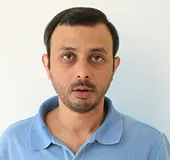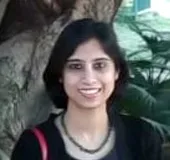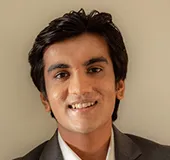-
CENTRES
Progammes & Centres
Location
 PDF Download
PDF Download 
The word ‘unprecedented’ has often been used in the past year-and-a-half to describe the sheer scale of disruption that COVID-19 has unleashed upon the world. Indeed, now we know that the pandemic has spared no one, its wrath reaching the most cosmopolitan of cities and the remotest villages alike. Yet, in early 2020, as the outbreak of COVID-19 was declared a pandemic, leaders across the world would have thought the battle could be quickly won. They sounded off a war cry: Test, Trace, and Isolate. Countries shut down all movement in their cities and towns and closed their borders too, in an attempt to contain the spread of the virus. As lockdowns became the norm, the global economy was buffeted with strong headwinds, and many countries soon plunged into deep recession. Today, while we have a count of over 4 million lives lost (and counting), the real human cost of the pandemic remains immeasurable. The battle has not been won; the war is far from over.
The pandemic revealed the strengths and weaknesses of various governance systems, social welfare policies, principles of economic organisation, and multilateralism. It has also had an extraordinary impact on the churn that was already underway in the global order, even before the first reports of a ‘strange respiratory disease’ started coming out of Wuhan. Growing geopolitical rivalries—characterised by the need to gain technological, economic and military superiority—continue to disrupt the delicate balance of power that exists in the world today. The rise of protectionist sentiments, coupled with the growing discontent towards multilateralism and globalization, are dramatically changing the post-Second World War consensus on managing an increasingly integrated, albeit distrustful world.
As India navigates the challenges of this evolving global order amidst the massive fallout of the pandemic, its policy choices need to respond to the current complexities and reflect the needs, aspirations and will of its people. This first iteration of ORF’s “Foreign Policy Survey”, conducted in collaboration with Impetus Research, endeavours to understand the opinions and views of the country’s youth on some of the most important questions that confront India and the choices that the nation must make in this fast changing global environment.
The survey—which reached out to the urban youth and was conducted prior to the second wave—found an optimistic assessment of India’s foreign policy and an agreement with many of the current government’s recent policy interventions and external engagements. More than seven of every 10 (72 percent) of the respondents rated the conduct of India’s foreign policy as either very good or good. Not surprisingly, global pandemics were assessed as India’s biggest foreign policy challenge, followed closely by terrorism, climate change, and border conflicts. The apprehension regarding China’s rise was reflected in the low trust ratings for India’s eastern neighbour. In contrast, the United States was rated highly in the survey, mirroring the direction taken by Indian foreign policy in recent years. The poll also takes a deep dive into the nuances of the Indian youth’s outlook on the economy, globalisation, and multilateralism, as well as the performance of the Prime Minister Narendra Modi-led Indian government on key issues.
Reflecting this survey’s goal of gaining a better understanding and a more rounded view of the youth’s perception and opinion of India’s foreign policy, the authors of this report are young people who have a stake in the nation’s journey in the coming years. Our young scholars—Prithvi Iyer, Nivedita Kapoor, Aarshi Tirkey, and Kartik Bommakanti, led by ORF’s Director of Studies and Head of Strategic Studies Programme, Professor Harsh V Pant have worked through this difficult period to produce this very important survey available to all who engage with India and its external relations. As times change, so do aspirations and perceptions. ORF will institutionalise this Foreign Policy Survey as an annual endeavour to better track how India’s young demographic comprehends the country’s foreign policy goals and its approach to its growing role in world affairs.
Congratulations to the entire team for this effort. We are confident that ‘The ORF Foreign Policy Survey 2021’ will help bring to the fore voices of young India and help us understand the generation who will shape this country’s partnerships and determine its place in the global order.
Dr Samir Saran President, ORF August 2021
The COVID-19 pandemic brought the world to a standstill in 2020. At the same time, the crisis caused the acceleration of certain trends in the international system that had predated the pandemic, among them the rivalry between the United States (US) and China. The same contestation is set to define the structures of the post-pandemic global system.
For some years before COVID-19, China had begun its economic and geostrategic rise, the US’s hegemonic position was already diminishing, the gains of globalisation were getting discredited, multilateral organisations were proving ineffective, populism was rising, and the focal point of global geopolitics and geoeconomics was pivoting to Asia. In the past year, all of this stirring has only gathered pace, revealing in stark detail the faultlines within the international system.
To be sure, COVID-19 has given a new urgency to questions around the future of the world order, the contours of which remain unclear. While the post-Cold War US hegemony has come to an end, a bipolar or multipolar world has not emerged. The situation is thus where the rules of the game are yet to be established, making this period in contemporary history particularly volatile and subject to widespread policy shifts by nation-states responding to the systemic changes. This is already visible in the Asia- Pacific region, which occupies centre-stage in the ongoing US-China rivalry and is being re-imagined by prominent stakeholders as the “Indo-Pacific”.
India—a key power in this endeavour—is making efforts to carve out a niche for itself at the decision- making table. It is engaged in efforts to manage China, the rising power on its border, while working on boosting domestic growth. Even as certain contours of this future policy are already emerging, much will depend on how the regional and international system shapes itself, in turn determining India’s status in it. It may not be an overreach to conclude that these developments together will have an indelible impact on Indian foreign policymaking.
Not yet a major power but no longer a player that can be ignored – India has a unique position today that has led to an ongoing lively debate on the choices being made as the country positions itself in the world. The fractious nature of the debate reveals the inflection point that has been reached: the roads taken will define Indian policy in the years to come, just as much as those not taken will.
While foreign policy continues to be an elite decision-making domain, India, as a democracy, should remain steadfast in considering public opinion, especially when it comes to issues with far-reaching consequences. With 65 percent of the Indian population being young—i.e., below the age of 35— taking this demographic along its journey becomes even more significant.
Various surveys on India’s public opinion and foreign policy have been conducted over the past several years, each with their own strengths and limitations. For one, the Indian Institute of Public Opinion (IIOPO) has been conducting annual and sometimes bi-annual surveys since 1959; however, it is only recently that these are being analysed.<1> There have also been issue-specific surveys that aimed to assess public opinion on crucial events such as the Gulf War of 1991,<2> India’s 1998 Pokhran 2 nuclear tests,<3> the 1999 Kargil War, the 2003 Iraq War,<4> and the 2008 Civil Nuclear Deal.<5> Other polls have sought to understand public mood on broader themes that include Indo-US bilateral ties,<6> the separatist movement in Sri Lanka,<7> and the use of nuclear weapons.<8>
While useful in their declared aims, these surveys suffer from several limitations. For instance, the IIOPO has no clear sampling strategy, and as mentioned earlier, has not been analysing its survey findings until recently. Some surveys are limited by their scope as they relate to a single event, while others are restricted by their sampled population, usually the urban demographic and those in policymaking circles. The latter trend was seen in different surveys conducted by media houses and scholars on the Indian government’s nuclear policy<9> (1994) and the country’s foreign and security policy<10> (2019).
In more recent years, some polls have been broader in their aims and have assessed Indian attitudes towards the government’s policies,<11> and their views on relations with other countries.<12> For instance, Devesh Kapur, the then Director of the Center for Advanced Study of India at the University of Pennsylvania, conducted a survey from 2005-2006 that remains the largest pan-India poll so far, with 212,563 interviews.<13> The survey assessed how Indians perceive various countries, and also attempted to link India’s foreign policy with the perceptions of various Indian socio-economic groups and regions.<14> Other polls with similar aims of gauging the electorate’s response towards foreign policy have also been undertaken by the Lowy Institute in collaboration with the Australia India Institute.<15> With a sample of 1,233 Indian adults, the poll gathered opinion on India’s relations and reputation with other countries, security threats, and the structure of the Indian Ministry of External Affairs. CNN-IBN-Today in 2014 conducted its own survey of 6,280 urban residents, to gauge if the Indian public favoured Prime Minister Narendra Modi’s governance and policies, including his foreign policy.<16>
This survey builds upon the existing strand of polling research, but with a focus on India’s urban youth. This is an endeavour to understand how the youth—the most important stakeholders of India’s future—perceive crucial foreign policy changes and propositions. As foreign policy initiatives become enmeshed with domestic political considerations, ORF is of the view that an opinion poll of this nature has become more relevant than ever. Since this poll is the first attempt to conduct this exercise, we are surveying a smaller subset i.e., the Indian urban youth.
The poll sampled 2,037 Indians from 14 cities, and the questionnaire was administered in eight regional languages, in addition to English (see Annex B for full details on the Methodology). It is the first Indian survey that targets the age group of 18-35 years. The survey evaluates recent views of the urban youth on the government’s foreign policy, their assessment of emerging challenges in this domain, as well as India’s ties with regional and global powers. The authors believe that this survey is the first of its nature to consider India’s public opinion on multilateralism and globalisation, and examine how these perceptions may be shaped by the COVID-19 crisis, which continues to unfold as we publish this report.
This survey, conducted between 3 to 21 December 2020, reflects the public opinion on foreign policy developments up to that period. Since then, the rapid pace of changes within and outside India has continued unabated.
India, which has been grappling with a devastating second wave of the COVID-19 pandemic, has had to rethink questions about its domestic capacity and international ambitions. At the same time, it is aware that the evolving international situation continues to demand its steady involvement and response. Given the timeline of the poll—i.e., before the second wave hit the country—these dilemmas are inevitably not reflected in the survey responses.
However, even as these conundrums remain unaddressed, the responses to ORF’s survey can still provide useful insights on the nature of public opinion in India in relation to the government’s key foreign policy decisions. Needless to say, future surveys would benefit from mapping any identifiable differences in public opinion as a result of the second wave of the pandemic, and whether it may have had a lasting impact on how India's youth interprets the nation’s engagement with the world.
Access the full report here.
<1> Aidan Milliff, Paul Staniland, and Vipin Narang, “Uneven Accountability? Public Attitudes on Indian Foreign Policy since the 1960s,” MIT Political Science Department Research Paper No. 2019-21, 2019, 1–66.
<2>Shivaji Kumar, “India’s Public Opinion and Foreign Policy: A View from New Delhi,” India Review 17, no. 4 (August 8, 2018): 353–71.
<3>Kumar, “India’s Public Opinion and Foreign Policy: A View from New Delhi.”
<4>Kumar, “India’s Public Opinion and Foreign Policy: A View from New Delhi.”
<5>Kumar,“India’s Public Opinion and Foreign Policy: A View from New Delhi.”
<6>Kumar, “India’s Public Opinion and Foreign Policy: A View from New Delhi.”
<7>Kumar, “India’s Public Opinion and Foreign Policy: A View from New Delhi.”
<8>Benjamin A. Valentino and Scott D. Sagan, “Atomic Attraction,” The Indian Express, June 3, 2016.
<9>David Cortright and Amitabh Mattoo, “Elite Public Opinion and Nuclear Weapons Policy in India,” Asian Survey 36, no. 6 (May 25, 1996): 545–60.
<10>Dhruva Jaishankar, “Survey of India’s Strategic Community” (New Delhi, 2019).
<11>Kumar, “India’s Public Opinion and Foreign Policy: A View from New Delhi.”
<12>Rory Medcalf, “India Poll 2013” (Sydney, 2013).
<13>Devesh Kapur, “Public Opinion and Indian Foreign Policy,” India Review 8, no. 3 (August 13, 2009): 286–305.
<14>Kapur, “Public Opinion and Indian Foreign Policy.”
<15> Medcalf, “India Poll 2013.”
<16> Kumar, “India’s Public Opinion and Foreign Policy: A View from New Delhi.”
The views expressed above belong to the author(s). ORF research and analyses now available on Telegram! Click here to access our curated content — blogs, longforms and interviews.

Professor Harsh V. Pant is Vice President – Studies and Foreign Policy at Observer Research Foundation, New Delhi. He is a Professor of International Relations ...
Read More +
Kartik Bommakanti is a Senior Fellow with the Strategic Studies Programme. Kartik specialises in space military issues and his research is primarily centred on the ...
Read More +
Nivedita Kapoor is a Post-doctoral Fellow at the International Laboratory on World Order Studies and the New Regionalism Faculty of World Economy and International Affairs ...
Read More +
Prithvi Iyer was a Research Assistant at Observer Research Foundation Mumbai. His research interests include understanding the mental health implications of political conflict the role ...
Read More +